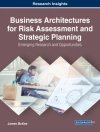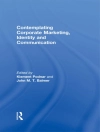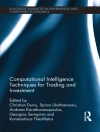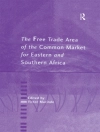The Sage Handbook of Measurement is a unique methodological resource in which Walford, Viswanathan and Tucker draw together contributions from leading scholars in the social sciences, each of whom has played an important role in advancing the study of measurement over the past 25 years. Each of the contributors offers insights into particular measurement related challenges they have confronted and how they have addressed these.
Each chapter focuses on a different aspect of measurement, so that the handbook as a whole covers the full spectrum of core issues related to design, method and analysis within measurement studies. The book emphasises issues such as indicator generation and modification, the nature and conceptual meaning of measurement error, and the day-to-day processes involved in developing and using measures.
The Handbook covers the full range of disciplines where measurement studies are common: policy studies; education studies; health studies; and business studies.
Tabela de Conteúdo
Reflections on Social Measurement: How Social Scientists Generate, Modify, and Validate Indicators and Scales – Eric Tucker, Madhu Viswanathan and Geoffrey Walford
PART ONE: METHODS FOR DATA COLLECTION
Surveys, Tests, and Observational Scales
How to get Valid Answers from Survey Questions: What we Learned from Asking about Sexual Behavior and the Measurement of Sexuality – Aniruddha Das and Edward O Laumann
The SAT : Design Principles and Innovations of a Quintessential American Social Indicator – Howard T Everson
Measurement as Cooperative Communication: What Research Participants Learn from Questionnaires – Norbert Schwarz
Developing Observation Instruments and Arriving at Inter-rater Reliability for a Range of Contexts and Raters: The Early Childhood Environment Rating Scales – Elena Soucacou and Kathy Sylva
Studying Teacher Effectiveness: The Challenges of Developing Valid Measures – Linda Darling-Hammond, Jack Dieckmann, Ed Haertel, Rachel Lotan, Xiaoxia Newton, Sandy Philipose, Eliza Spang, Ewart Thomas, and Peter Williamson
Identifying Consumers′ Compulsive Buying Tendencies: Lessons Learned for Measuring Consumer-related Phenomena – Kent B Monroe, Nancy M Ridgway and Monika Kukar-Kinney
PART TWO: THE CONTEXT OF MEASUREMENT
Comparative, Cultural, Linguistic, and International Dimensions of Measurement
Linguistic Factors in the Assessment of English Language Learners – Jamal Abedi
Measurement Issues in Cross-cultural Research – A Timothy Church
Conceptualizing and Measuring Culture: Problems and solutions – Louis Tay, Sang Eun Woo, Jennifer Klafehn and Chi-yue Chiu
International Comparisons of Educational Attainment: Purposes, Processes, and Problems – David Phillips
Measurement Across Time and Space
Reflections on Measuring Behavior: Time and the Grid – Roger Bakeman
Approaches to Measuring Multi-dimensional Constructs across the Life-course: Operationalizing Depression over the Lifespan – Briana Mezuk and William W Eaton
Description and Discovery in Socio-spatial Analysis: The Case of Space Syntax – Bill Hillier and Noah Raford
PART THREE: FUNDAMENTAL ISSUES IN MEASUREMENT
Minimizing Measurement Error
Understanding the Intangibles of Measurement in the Social Sciences – Madhu Viswanathan
Towards a More Rigorous Scientific Approach to Social Measurement: Considering a Grounded Indicator Approach to Developing Measurement Tools – Eric Tucker
Theorisation of Constructs
Measuring Conceptualizations of Morality: Or How to Invent a Construct and Measure it too – Remo Ostini
The Problem with Poverty: Definition, Measurement and Interpretation – Robert Walker, Mark Tomlinson and Glenn Williams
Critical and Ethical Perspectives
Ethical Issues in Social Measurement – Martin Bulmer and Josephine Ocloo
Measuring is More than Assigning Numbers – Stephen Gorard
Is Social Measurement Possible, and is it Necessary? – Martyn Hammersley
PART FOUR: THE REAL WORLD PRACTICE OF MEASUREMENT
Sensitive Issues and the Difficult to Measure
Sensitive Issues and the Difficulty to Measure: The Case of Measuring Child Sexual Abuse – Will Tucker and Ross Cheit
Indirect Measurement – David J Bartholomew
Improving the Practice of Measurement
Increasing the Measurement Accuracy of Consumption Intentions – Brian Wansink
Making Applied Measurement Effective and Efficient – Ujwal Kayande
Contemporary Challenges of Longitudinal Measurement Using HRS Data – John J Mc Ardle
Measuring the Dimensions of Social Capital in Developing Countries – Veronica Nyhan Jones and Michael Woodcock
Administrative and Secondary Data and Performance Measurement
The Use of Administrative Data to Answer Policy Questions: Secondary Data on Crime and the Problem with Homicide – Marc Riedel
Assessing Performance of School Systems: The Measurement and Assessment Challenges of NCLB – Sean Mulvenon
Sobre o autor
Madhu Viswanathan earned Bachelor’s (Mechanical Engineering, IIT, Madras, India, 1985), and doctoral (Marketing, University of Minnesota, 1990) degrees. He joined Loyola Marymount University in August, 2019, after being on the faculty at the University of Illinois, Urbana-Champaign, for 29 years. His research programs are on measurement, and subsistence marketplaces, where he has authored several books including Measurement Error and Research Design (Sage, 2005), Enabling Consumer and Entrepreneurial Literacy in Subsistence Marketplaces (Springer, 2008), Subsistence Marketplaces (ebookpartnerships, 2013), and Bottom-Up Enterprise (ebookpartnerships, 2016). He has pioneered the area of subsistence marketplaces, with a bottom-up approach to the intersection of poverty and marketplaces (www.business.illinois.edu/subsistence). He taught courses on research methods, subsistence, and sustainability, educational experiences on the latter, reaching almost a thousand students a year at the University of Illinois, and tens of thousands of students around the world through Coursera. He founded and directs the Marketplace Literacy Project (www.marketplaceliteracy.org), pioneering the design and delivery of marketplace literacy education to subsistence marketplaces. With partners and ongoing programs in India, Tanzania, Uganda, Kenya, Argentina, Honduras, Mexico, and Illinois, approximately 100, 000 women have received marketplace literacy education. He has received numerous awards and served on the Livelihoods Advisory Board of UNHCR.












